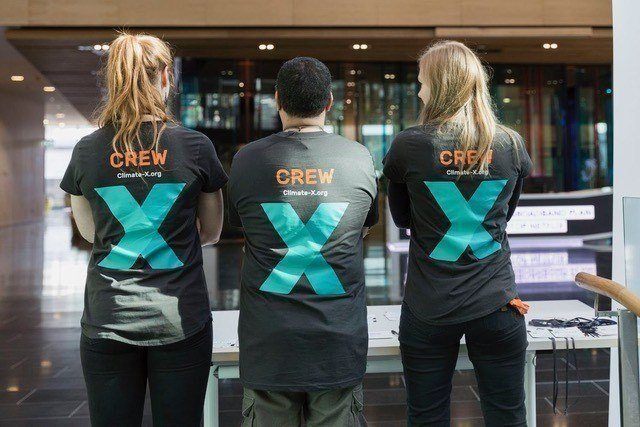First kill all the theories!

By Simon Divecha
Transformations for a thriving world require us to make significant changes. However I’ve been wondering where theory building fits in. And if — to get practical & scaled-up, impacts– we should first kill all our theories?!
At the very least, I’d like to invite our theories in AFTER practitioners’ design and then only to build on practice and its trial and error insights. Climate-x got me to think these radical thoughts.
Climate-x brings together entrepreneurs and innovators to go beyond business as usual. It helps groups to scaffold ideas together and create synergy between concepts such as profit and reversing global warming (our modern day thinking holds these in conflict with each other).
Around these topics it’s common to hear concepts such as: “Breakthrough rather than breakdown”; “You can’t solve problems with the level of thinking that created them”; and, “Double to triple loop learning”. They are compelling and somewhat nebulous. How to implement gets a little more clear with Climate-x, something I am personally engaged with.
Personally
I’ve been a sustainability practitioner all my life. This is with family, communities and worldwide. One of my earliest memories is getting my parents to stop using aerosols—I’d heard and understood they made “holes in the sky”… I was not the easiest child to raise!
My work’s continually shifted—through international convention and law to business and society enablement. For example, I helped change the Basel convention in 1994—international law that now bans many hazardous waste shipments. Breakthrough! Yet exports to China mostly stopped in 2018. Impact is more complex than changing the rules.
Regenerative solutions are a good example. They are profitable (e.g. Allbirds, Interface and energy efficiency). However, this profitability is a paradox—our modern-day thinking predominantly sees costs. We consistently fail to act in our own, financial or otherwise, self-interest.
Climate-x
Rapidly overcoming common dilemmas and obstacles to sustainability requires new approaches. To simulate this, over 3 days, around 100 Climate-x participants prototype, validate, build and re-form climate solution business models. The atmosphere and intensity reveals inconsistencies. This challenges us to remake how we understand and reformulate problems.
At Climate-x’s recent sprint we saw business models emerge which drive climate solutions, reverse global warming and, while scaling, increase profitability and ecological outcomes. That synergy represents a new “level of thinking”.
Triple loop
AR readers may be familiar with triple loop learning. That is what’s happening at Climate-x. We’re remaking our own understanding (facilitators and participants); stepping past modern-day paradigms; and, reconceptualising how business models can work.
These outcomes are scaffolded for participants, i.e., facilitated but not taught. There is no learning environment teaching the difference between a linear, single loop, change and recasting paradigms. Instead the rapid prototyping environment (the groups were still going, high energy, at 1 am!) alongside tools that appear straightforward but work as iterative matrix shifting structures—e.g. lean canvas—do the lifting.
Outcomes
Climate-x suggests:
1 – We can create environments feeding breakthrough success to deliver for us, individually and globally.
2 – Clever, applied and practical tools, rather than theory per-se, drives paradigmatic shifts.
3 – These shifts, things getting exponentially better, may answer exponentially deteriorating challenges (e.g. climate change).
Action
A highlight from this work is traction overcoming our research models’ sometimes underwhelming impact. Climate-x suggests we can be informed by wonderful theories but, in most circumstances, effective tools don’t mention these insights.
Would you like to share your experiments with seemingly straightforward tools? Do you have great examples of linear problem-solving forums that simultaneously scaffold triple loop-like learning?
Sharing examples should help us all drive scaled up impactful action. Your comments are welcome!
- Three stories we did not tell about NGO-Community Collaboration in Uganda - April 18, 2024
- Podcast on PAR Peacebuilding in Colombia - April 15, 2024
- Julian Hauer’s Workshop– thinking wider and deeper - April 15, 2024
